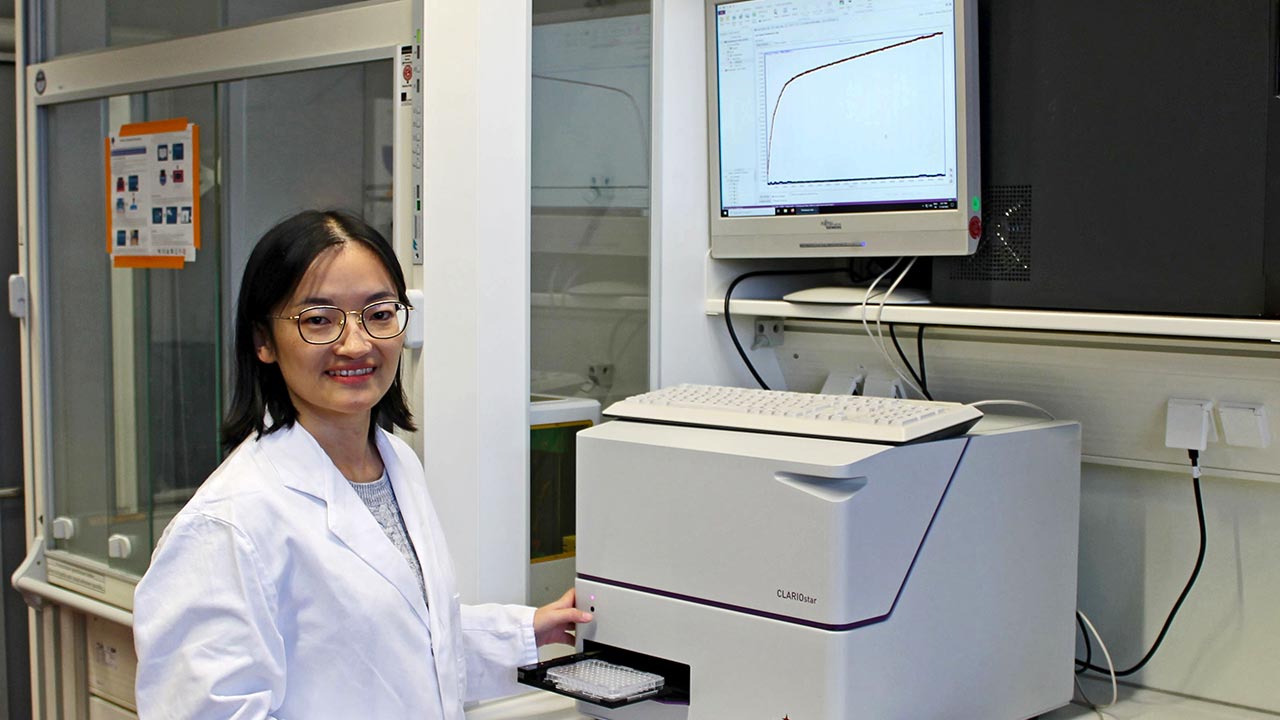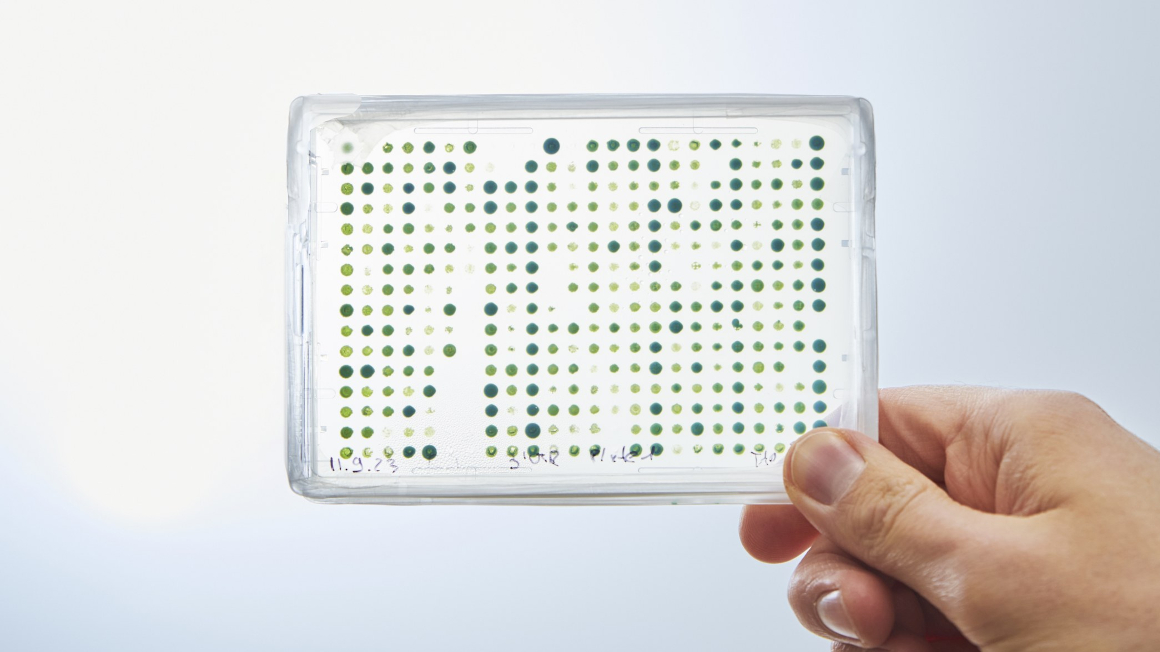Precise measurement of heat resistance of enzymes
Heat-resistant enzymes could be incorporated into biodegradable plastics to accelerate their decomposition.

Biodegradable plastics do not disappear from the environment as quickly and easily as their name promises. Instead, many plastics degrade only very slowly or partially. Researchers at the University of Bayreuth have developed a new approach that could alleviate this problem: They incorporate enzymes into the plastic during production that later effectively degrade the material in wastewater treatment plants or composting facilities.
Enzymes must withstand more than 100 degrees Celsius
Until now, this idea failed because enzymes are only heat-stable to a limited extent and the melt extrusion process for producing biodegradable plastics requires temperatures of well over 100 degrees Celsius. In collaboration with the Federal Institute for Materials Research, the experts have now developed a method for determining the temperature up to which an enzyme is heat stable. The method can be used for processes with temperatures of up to 200 degrees Celsius.
The research team tested the approach using proteinase K as an example. Proteinase K is an enzyme that can degrade molecules of biodegradable plastics made from polylactic acid. "With the methods presented in our new study, it will be possible to preserve enzymes from thermal degradation much better than before," hopes Chengzhang Xu of the University of Bayreuth and lead author of the study published in the journal Biomacromolecules. "We now have a reliable tool in hand to evaluate technical measures developed and proposed to protect enzymes for their effectiveness."
Basis for new hybrid materials
Andreas Greiner from the University of Bayreuth, who coordinated the research work, hopes that it will have wide-ranging applicability: "The results we have achieved using proteinase K as an example are potentially transferable to other proteins. They strengthen a still new research direction in which new hybrid materials based on enzymatically degradable and heat-deformable plastics are being developed." Continuing, the expert says, "These materials not only serve to combat microplastic waste, but can also support, for example, the development of new drugs or the regeneration of diseased or damaged tissue."
The research team already has plans for further work, as Xu explains: "In Bayreuth, we intend to explore new methods for heat-resistant encapsulation of proteinase K." Encapsulation seems to be a promising way to introduce enzymes into the production of biodegradable plastics.
bl


